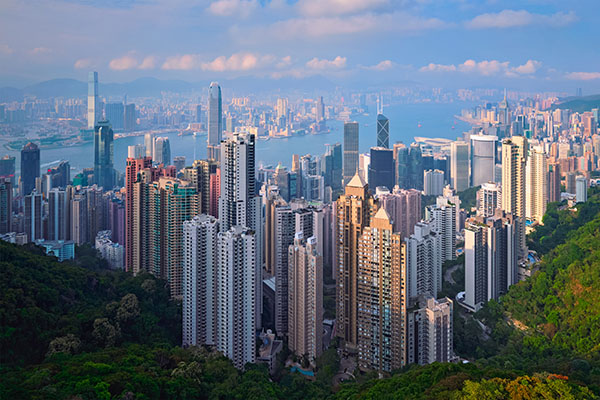Hong Kong has always been one of my favorite cities on earth, with its wonderful airport, gorgeous views of Victoria Harbor, the Star Ferry to Kowloon, and the bustling business environment. The energy level in the city is truly remarkable.
If you are doing business in Asia, you are probably using Hong Kong as the airport to make flight connections, manage cargo consolidations, an efficient seaport, and for global financial operations. Since WWII, Hong Kong has been an established city for international business and financial headquarters.
As a former British Crown Colony, Hong Kong operates under traditional British common law and retains this system even as a Special Administrative Zone of China. Hong Kong has long been known worldwide as a welcoming and very stable democracy – the gateway to Asia. But things are changing rapidly.
On May 28, 2020 China’s primary legislative body, the National People’s Congress (NPC), passed a new law that will allow Beijing to tighten its authoritative hold over Hong Kong. This national security law has bypassed Hong Kong’s own democratic legislative procedures, and is likely to have serious and lasting political and economic repercussions worldwide. In fact, over the past year, protests and riots in Hong Kong that damaged subway stations, many buildings, and resulted in many injuries and arrests were in response to Beijing’s intervention in Hong Kong affairs.
This new legislation goes even further and permits Chinese security services to operate in Hong Kong for the first time. Many Hong Kongers fear that the People’s Liberation Army could be deployed onto the streets should protests resume, just as they were in Tiananmen Square in 1989.
Hong Kongers are fierce protectors of their democracy, their rule of law, and their lifestyle, so China’s intrusion into the city’s operations has met with heavy resistance. With the passage of this new law, Hong Kong will be subject to the same standards and definitions of criminal behavior currently operating inside mainland China under communist rule.
President Trump has announced that the new Chinese national security law will require the United States to remove Hong Kong’s special economic status granted under American law.
This special status has supported democratic free Hong Kong for years with trade and economic treatment similar to America’s closest allies. It is unclear why Trump would favor Xi Jinping’s government instead of our long and friendly relationship with Hong Kong, particularly in light of Trump’s very adversarial trade war with China. The relationship between China and the U.S. is currently tenuous and confusing.
In response to the new regulations, new waves of protest by Hong Kongers have again become violent.
Residents are threatened by new laws that could obstruct the freedom they have enjoyed over the past 25 years as China observed the “one country, two systems” approach to governance. The first sign of this change was the refusal of permits for Hong Kongers to commemorate the June 4 Tiananmen Square memorial. Defying the refusal of permits, Hong Kongers gathered anyway to remember the massacre.
Britain has signaled its willingness to take immigrants from Hong Kong with a path to British citizenship, in response to the new Chinese law. Hong Kong was a British Crown Colony for 156 years and the ties between the UK and Hong Kong run deep. But it is unlikely that many Hong Kongers will move from their home.
It is likely that supply chain operations will again be disrupted at the Hong Kong airport and seaport. Last year’s protests shut down the airport off-and-on for weeks. Some cargo consolidations moved to the Guangzhou Baiyun International (Canton) airport. International banking may also be affected including Letters of Credit and deposits to international bank accounts.
The risks of doing business in Hong Kong should be closely monitored. Stay tuned, and pay close attention to this difficult situation.
SC
MR


Latest Supply Chain News
- Retail sales see gains in October, reports Commerce and NRF
- Balancing green and speed: Home delivery insights from the pandemic era
- AdventHealth named top healthcare supply chain by Gartner
- Geopolitical readiness in supply chains: Strategic challenges for leaders
- Unlocking retention: The role employee engagement plays
- More News
Latest Podcast

 Explore
Explore
Business Management News
- Retail sales see gains in October, reports Commerce and NRF
- Balancing green and speed: Home delivery insights from the pandemic era
- AdventHealth named top healthcare supply chain by Gartner
- Unlocking retention: The role employee engagement plays
- Can supply chain managers embrace an entrepreneurial mindset?
- Challenges to ESG reporting
- More Business Management
Latest Business Management Resources

Subscribe

Supply Chain Management Review delivers the best industry content.

Editors’ Picks




